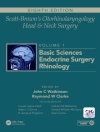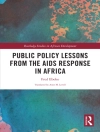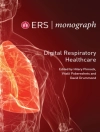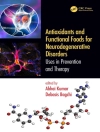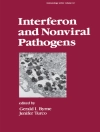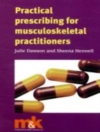This book focuses on the management strategies of complex conditions of frail pediatric patients.
The clinical condition of frailty is usually seen as the physiological and multidimensional decline of organ systems related to age: paradoxically, a frailty condition can also occur in children as a disability resulting from various congenital or acquired diseases. The fragile patients are more vulnerable to developing severe clinical events and often need surgical interventions. Moreover, those patients have significant morbidity and lower quality of life. The improvement in managing fragile patients has improved their life expectancy, but in most health care systems, the passage from childhood to adulthood is a critical point for the lack of medical figures able to provide the continuity of care. The book aims to provide guidance for dealing with medical and surgical emergencies and to develop short and long-term treatment strategies, and will provide an analysis of the different and the most innovative techniques.
This book will be an unvaluable tool for Pediatric surgeons, Anesthesiologists, Critical Care Physicians, Hospital and family Pediatricians, nurses, Physiotherapists and Psychologists.
Spis treści
Section 1 Introductory aspects.- 1. Frailty in pediatrics: definition and care needs.-
Section 2 Frail newborn infants.- 2. Premature Infants.- 3. Newborns with congenital malformations.-
Section 3 Frail children.- 4. Frail Children with chronic lung disease.- 5. Frailty in patients with chronic kidney disease.- 6. The frail child with chronic liver disease.- 7. The Surgical Management of Children with Intestinal Failure.- 8. Children with obesity.- 9. Frailty in children with oncological disease.-
Section 4 Operational improvement strategies.- 10. Operational Improvements in Neonatal Surgery.- 11. Operational improvement in pediatric surgery.- 12. Operational improvement in pediatric neurosurgery.- 13. Fragility of children with severe early onset scoliosis: Description and analysis of innovative techniques with “growing systems”.- 14. Medical and rehabilitation interventions in childrenwith frailty.- 15. Operational improvement in Psycology.-
Section 5 Conclusions.- 16. Follow-up to ensure continuity of care and support preventive care.- 17. Social aspects: Sutainability for the patient, the family.- 18. Transitional medicine, from childhood to adulthood.
O autorze
Mario Lima, is Full Professor at the University of Bologna and Director of the Pediatric Surgery Unit at the “Policlinico S.Orsola” Hospital IRCCS of Bologna. He is Director of the Graduate School for Pediatric Surgery at the same University of Bologna. Author of over 600 scientific publications and 38 monographs, he performed over 5000 surgical procedures as first operator. He is known internationally for the use of mini-invasive techniques in thorax, abdominal, genital and urinary surgery, both in neonates and children. He is past deputy Dean of the Faculty of Medicine and Surgery of the University of Bologna, and past Dean of the integrated Department of Children, Adolescent and Women’s Health of the “Policlinico S. Orsola” IRCCS, and President of the Medical and Surgical Society in Bologna, Italy. He is emeritus President of Italian Society of Pediatric Surgery and member of many scientific associations. He is actually Dean of the School of Medicine and Surgery of the University of Bologna.
Maria Cristina Mondardini, is head of the Pediatric Intensive Care Unit at the University Hospital Polyclinic S.Orsola, IRCCS of Bologna. Lecturer in pediatric anesthesia and intensive care at the Medical Specialization Schools of the Alma Mater Studiorum University of Bologna. She collaborated as Principal Investigator in National and International pediatric trials and published several scientific papers. Her research focuses on pediatric pain, sedation treatment, palliative care. She is a member of many scientific societies. Currently, she coordinates the team that draws up the Guidelines on analgesia and sedation in PICU for the National Institute of Health.


